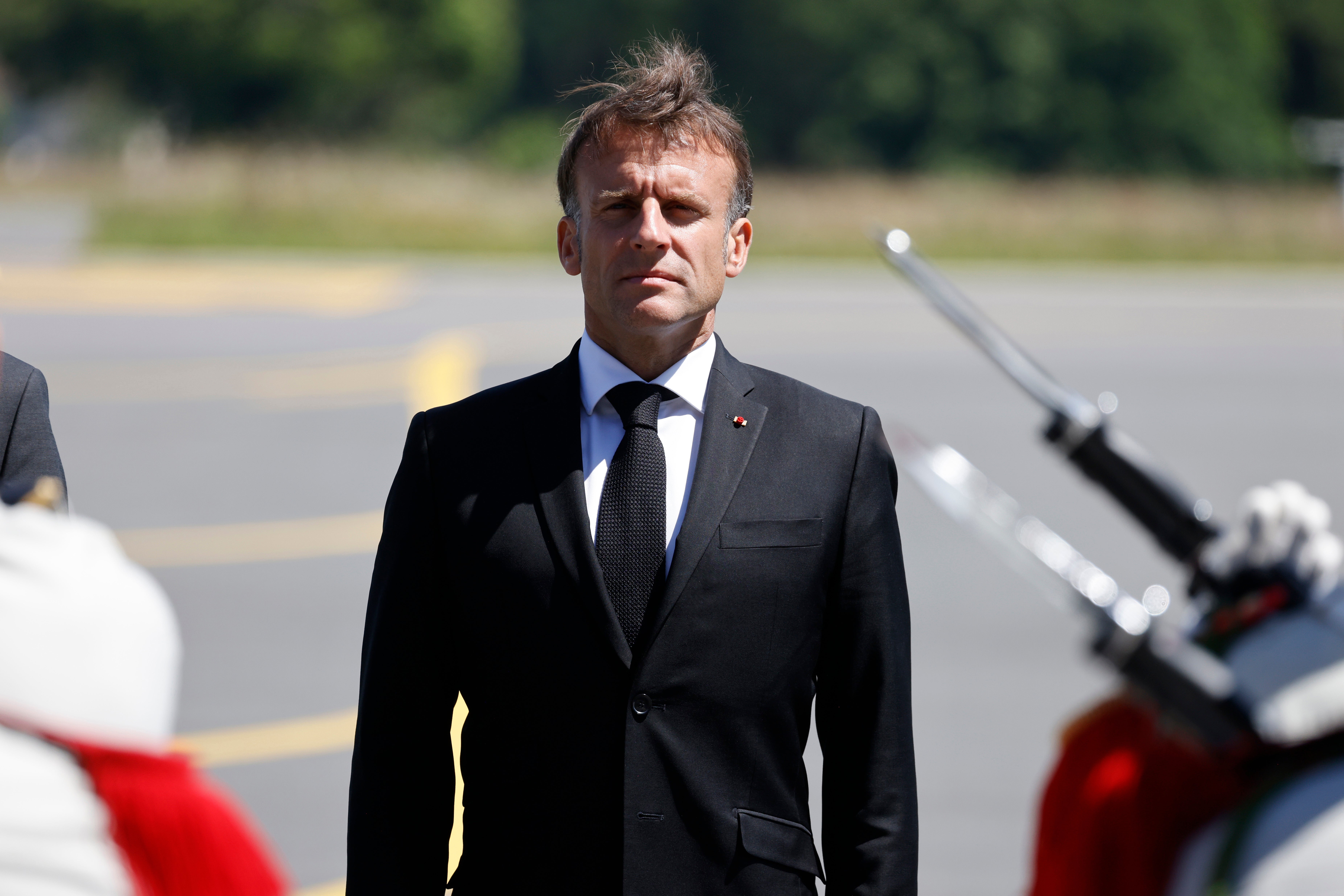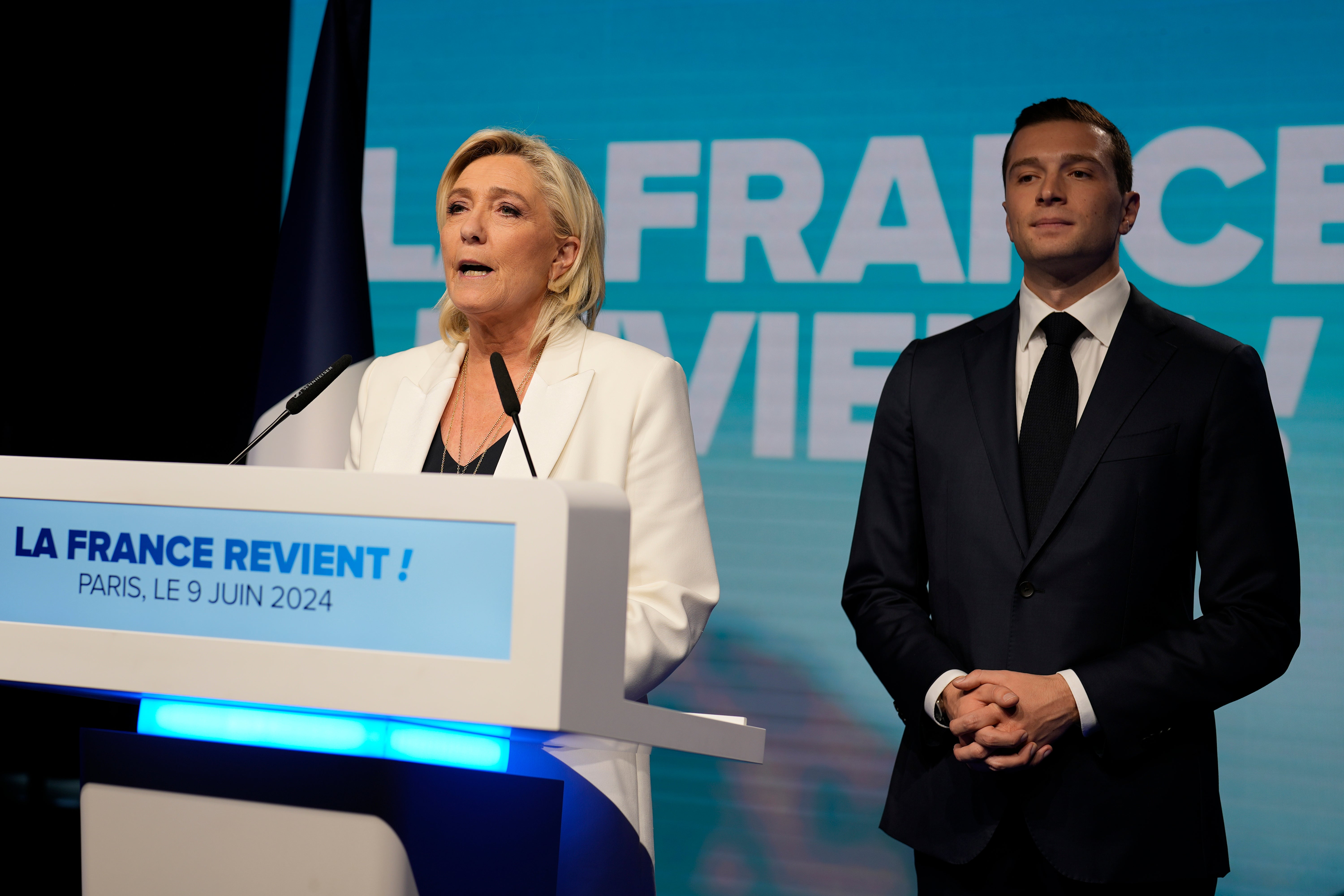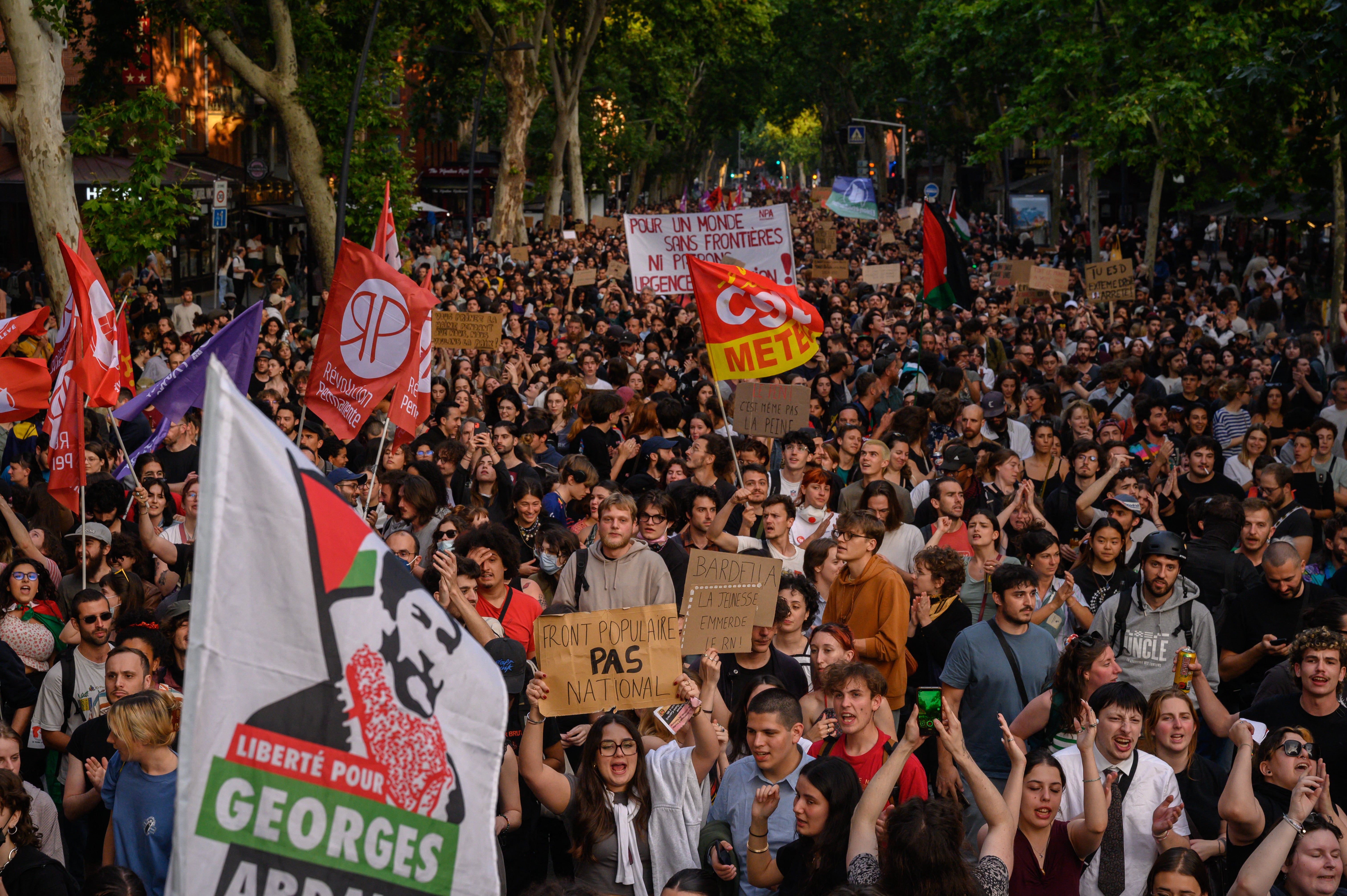French centre-right leader says he wants election alliance with far-right of Le Pen
Announcement shocks colleagues in the Republicans party on the mainstream right

The leader of France’s mainstream right has said he would back an alliance with Marine Le Pen’s far-right National Rally (RN) in snap elections announced by president Emmanuel Macron – sparking a backlash from his own party and shocking opponents.
The head of the right-wing Republicans party, Eric Ciotti, said: “We need to have an alliance while remaining ourselves... an alliance with the National Rally and its candidates.” His party won around 7 per cent of the vote in European parliamentary elections where RN won more than 30 per cent of the vote and Mr Macron’s centrist ticket won only 15 per cent. Hours later, Mr Macron dissolved parliament.
A number of senior political figures connected to the Republicans party hit out at Mr Ciotti’s stance. Gerald Darmanin, the interior minister and former member of the Republicans, said Mr Ciotti had “dishonoured” Gaullism – General Charles de Gaulle founded the movement. He also accused Mr Ciotti of “signing the Munich agreement”, an appeasement deal reached in 1938 between Nazi Germany, France, the UK and Italy.
Ms Le Pen called Mr Ciotti’s move a “brave choice”, while the other face of the party, 28-year-old Jordan Bardella, promised supporters “the largest possible majority” in his first interview since the European results.

In light of the European polls, politicians on the left are focused on closing ranks to prevent a win for the National Rally. For now, they have also vowed not to join forces with Mr Macron’s centrists. In a joint statement, the alliance called on all forces on the left, including the influential labour unions, to unite behind a “new popular front” to form an “alternative to Emmanuel Macron and to fight against the racist project of the far right”.
Mr Macron’s election announcement also prompted left-wing unions, parties and student movements to hold demonstrations in towns and cities across France on Monday. In Marseilles, more than 1,000 people took part in a protest.
As for Mr Macron himself, he told Le Figaro on Tuesday that he was “out to win” the snap elections, to be held on 30 June and 7 July. On Monday, he had evoked the horrors of fascism in a pre-election warning as parties seek alliances to stop the hard-right taking power in France.

Mr Macron warned Europe’s history of fascism should not be allowed to “recommence” as he visited Oradour-sur-Glane, a village in central France where 643 civilians were killed by the Nazis in 1944.
“And in this memory, in the ashes of Oradour, we must ensure that force of this reconciliation, the sap of our European project, our continuing desire for liberty, equality and fraternity is reborn,” Mr Macron said.
Mr Macron was due to give a press conference on Tuesday afternoon, but it was postponed until Wednesday.
Election specialists say Mr Macron faces an uphill battle if he is to avoid the prospect of a RN victory.
According to an IFOP survey for Paris Match magazine, 36 per cent of polled citizens hoped for National Rally to win at the election.

Asked which party was most likely to emerge as the winner of the two-round ballot, 60 per cent of the panel cited the National Rally.
The survey, which did not simulate parliamentary elections with their two-round majority votes as such, did not include seat projections.
Join our commenting forum
Join thought-provoking conversations, follow other Independent readers and see their replies
Comments
Bookmark popover
Removed from bookmarks